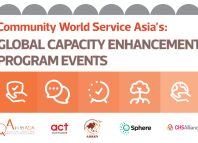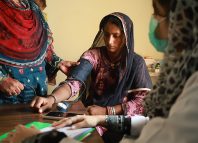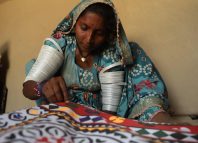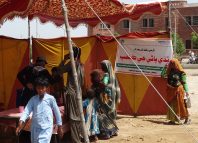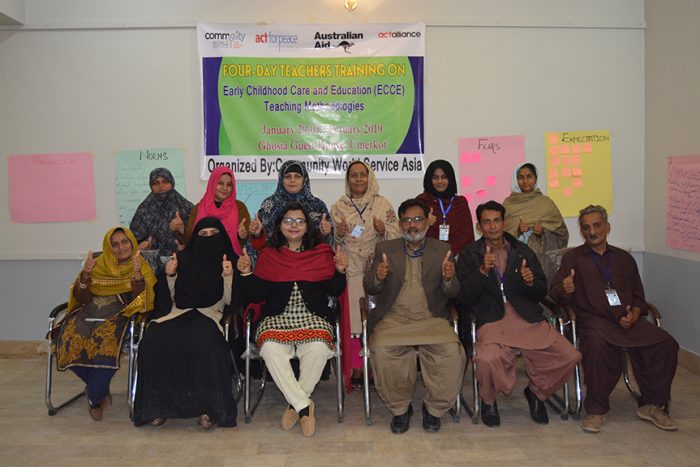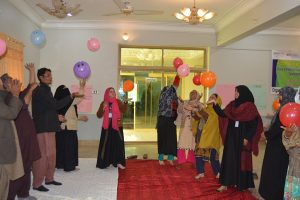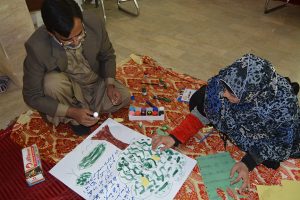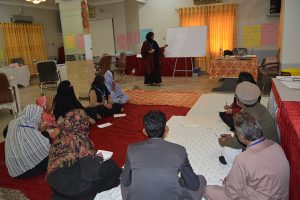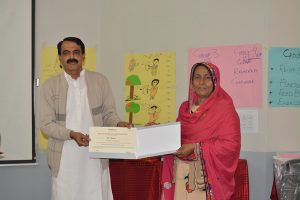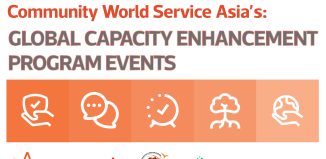Introducing Early Childhood Care & Education in Teacher Training Programs in Umerkot
A four-day teachers’ training was held under our education program, supported by Act for Peace and Australian Aid for public schools’ teachers from the Umerkot district of Sindh province. The training focused on amplifying the skills of these teachers on early childhood care (ECCE) and advanced teaching methodologies. Thirteen teachers from different schools participated in this workshop that took place in Umerkot from January 29th to February 1st.
Early Childhood Care and Education (ECCE) is a new teaching approach that was introduced to the teachers in the training in Umerkot. Early childhood, defined as the age between a child’s birth uptil eight years, is scientifically identified as a time of remarkable cognitive growth, with brain development at its peak. During this stage, children are highly influenced by the environment and the people that surround them. The ECCE approach does not only relates to teaching practices in primary schools. It aims at the holistic development of a child’s social, emotional, cognitive and physical needs in order to build a solid and robust foundation for lifelong learning and wellbeing. Since August 2018, the Umerkot district government has initiated the application of ECCE as compulsory in all primary government schools of the district.
Nadia Riasat, program officer and trainer at CWSA facilitated the workshop, emphasizing on the dire need to increase knowledge on holistic development of children and together with the participants identified key learning areas to help develop child-friendly learning environments in classrooms. During the four-day training, she elaborated on the teaching methodologies available to promote ECCE and how these would help teachers keep the students’ interest and attendance consistent.
Through various interactive exercises, the teachers were kept engaged throughout the training and were encouraged to share the challenges they face in teaching and maintaining positive and conducive learning environments. ECCE was identified as one of the key approaches to sustain productive classroom settings as it adopts play-way and activity-based approaches to promote effective knowledge and character building among children. To inculcate the ECCE teaching approaches among the participants, the teachers were engaged in various activities such as role-plays, storytelling, poem recitals, presentations and production of low-cost teaching models. They also learnt new and creative ways of teaching mathematics and topics of general knowledge through applying arts and craft skills.
Naheed, a teacher at the GGPS[1] in Abdul Wahid Colony, Umerkot shared,
The training material we received and the content delivered during CWSA’s training were very useful to us in terms of engaging students in study through fun activities. The knowledge on ECCE has boosted the teachers’ confidence and enhanced their skills to overcome the hurdles we faced in keeping children interested in the subjects we taught. I will apply these methodologies and hope to achieve positive outcomes. Making creative art and craft through low-cost material is very useful, especially in rural areas like Umerkot. Most of the families that the students belong to are living in poor financial conditions and cannot bear extra expenses of additional stationary and learning material demanded by schools on certain occasions. For this reason, the use of extra material that is easily available in many of the children’s homes makes it easier for us teachers to engage children in such activities.
expressed Hajra, who has been teaching since 1992 and is currently a teacher at the GGPS in Main Samaro village of Umerkot.I was not willing to attend the training initially as I had not attended such trainings before. However, today I am glad that my other teacher colleagues convinced me to take part in the training as it gave me an opportunity to build upon my knowledge and develop specific skills to provide quality and fun education. Children learn fast when they are having fun and applying the techniques I learnt at the training will definitely result in positive outcomes for my classes. I will encourage other teachers to attend such trainings as it is very useful in enhancing the teaching skills of teachers,
During the training, the teachers were guided on how to develop action plans to implement their learnings and apply them in their day-to-day classrooms. The plans they developed included regular morning meetings in their classes, delegation and balanced division of work among students to build a sense of responsibility as recommended in the ECCE manual[2]. Many of the teachers planned to share their learnings with fellow teachers at their respective schools to mainstream ECCE and positive learning environments across all classes.
Naseem Ahmed Jogi, District Education Officer (DEO), was invited as a chief guest on the last day of the training to award appreciation and participation certificates. Gracing the occasion, Naseer Ahmed remarked,
This initiative by Community World Service Asia is changing the rigid environment of schools, and converting them into fun places for children to learn more effectively and enjoy education. We highly appreciate the strong support of CWSA in promoting the implementation of ECCE in school programs in this region. Our plan is to recruit more teachers specializing in ECCE and to construct separate classrooms for ECCE learning. These kind of trainings will speed up the ECCE application and inclusion processes which is why I encourage all of you here to continue taking such courses and encourage others to do the same.
[1] Government Girls Primary School
[2] ECCE Training Manual entails information on concept of ECCE, holistic development of children through ECCE, key learning areas, competencies of subject arithmetic, Urdu, culture and scheme of work on these subjects with methodologies.

